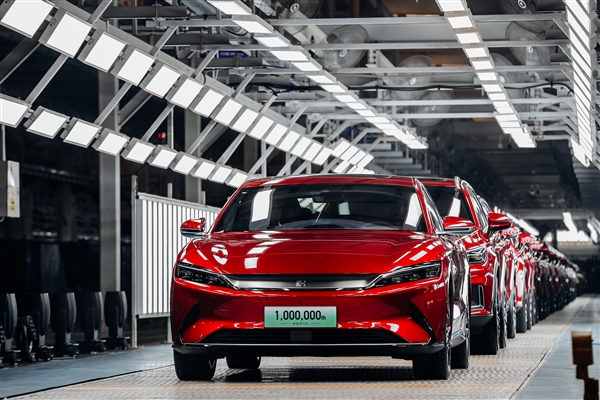What is the extent of BYD’s international sales and its performance in foreign markets?
So far, BYD has established production bases in various countries including the United States, Japan, Canada, Brazil, and India. They export new energy vehicles to numerous overseas countries and regions, resulting in significant sales abroad. In 2022 alone, BYD exported a total of 5,590 new energy vehicles.

BYD Han
Although this figure may seem small compared to the export volume of other self-owned car companies such as SAIC, Chery, and Geely, who can export hundreds of thousands or even millions of dollars worth of vehicles easily, it should be noted that BYD exports the latest new energy vehicles like Yuan PLUS, Han EV, and Tang EV.
Furthermore, BYD’s pricing for their vehicles in overseas markets is even higher than luxury brands like BBA. Most other independent car companies primarily export entry-level models. Despite this, BYD was still able to export 55,916 vehicles in 2022, ranking sixth among independent car companies.
In January and February of 2023, BYD’s foreign sales reached 10,409 and 15,002 respectively, demonstrating a significant upward trend. This remarkable performance in the foreign market is based on only 3-4 models. Moreover, BYD’s export business is still in its early stages. With the positive reception of the first batch of Tang EV and Han EV by overseas consumers, BYD plans to introduce more models in the future.
As BYD’s overseas orders continue to increase, the company is also addressing delivery and transportation challenges. After announcing their entry into the Thai market in August 2022, BYD established their first wholly-owned overseas passenger car factory in Thailand, set to commence production in 2024 at the earliest. Apart from supplying the local market, these vehicles will also serve the Southeast Asian market.
Notably, in October 2022, BYD invested 5 billion yuan to construct a fleet of transport ships and secured an order with a shipyard in Shandong for 8 roll-on/roll-off (ro-ro) ships capable of carrying 7,700 vehicles. Additionally, they placed an order with China State Shipbuilding Corporation for two dual-fuel Pure Car and Truck Carriers (PCTCs) that can accommodate 7,000 vehicles and two dual-fuel PCTCs with a capacity of 8,600 vehicles. These investments have laid a solid foundation for future large-scale automobile exports.
In summary, BYD is experiencing strong overseas sales and possesses great confidence in its future performance in foreign markets. Apart from passenger cars, BYD’s buses and trucks are also well-received abroad. Previously, BYD even resorted to temporarily renting bulk carriers at Shanghai Port to transport pure electric trucks to the Indian market.

 Auto in China
Auto in China